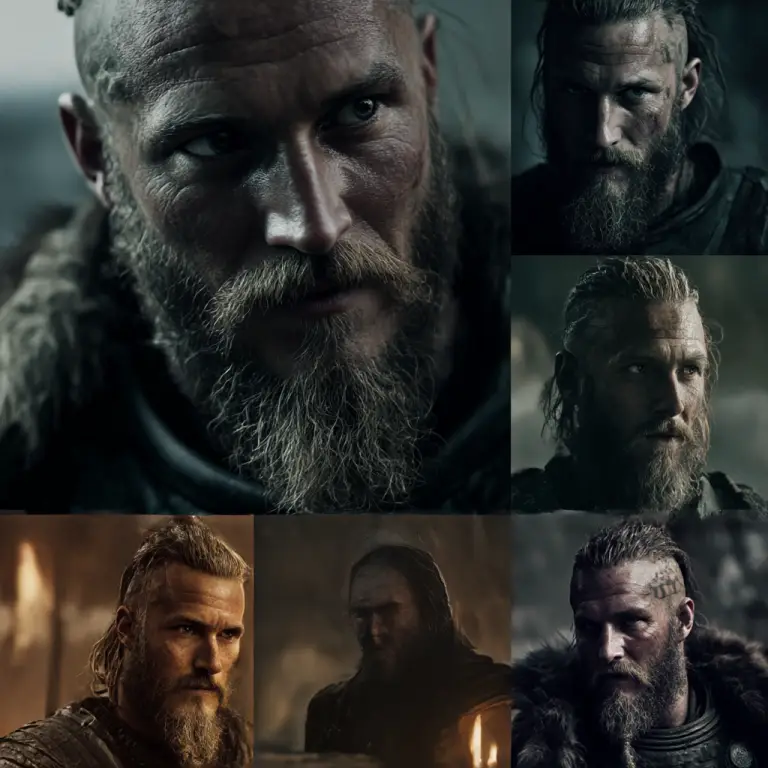Viking history and mythology have inspired filmmakers and storytellers for generations. From epic sagas of conquest and exploration to the mystical realms of the Norse gods, cinema and television have continued to reimagine the Viking Age in vivid and often dramatic ways. Below is a detailed exploration of some of the most significant Viking-themed films and series, their settings, historical accuracy, and cultural influence.
Vikings (2013–2020)
Created by Michael Hirst, Vikings became one of the most defining television portrayals of the Norse world. The series follows Ragnar Lothbrok, a legendary farmer turned warrior and king, whose ambition and curiosity lead him to sail west in search of new lands. Set primarily in Scandinavia and the British Isles during the late eighth and early ninth centuries, the series blends myth and history to depict the birth of the Viking Age.
The show’s detailed costuming, authentic language use, and atmospheric landscapes provide a gritty yet human portrayal of Norse life. It explores themes of family, loyalty, faith, and destiny, as well as the conflict between pagan beliefs and the rising influence of Christianity. Characters such as Lagertha, Floki, Bjorn Ironside, and Ivar the Boneless each represent different aspects of Viking society—warriors, explorers, builders, and visionaries.
Vikings: Valhalla (2022–Present)
A sequel to Vikings, this series takes place roughly a century later, following the next generation of Norse heroes during the decline of the Viking Age. Vikings: Valhalla focuses on historical figures such as Leif Erikson, Freydis Eiriksdottir, Harald Sigurdsson (Harald Hardrada), and King Canute the Great.
The story explores a changing world where Norse pagan traditions begin to fade as Christianity spreads across Scandinavia. The series balances political intrigue and personal ambition with large-scale battles and voyages, reflecting the spirit of exploration that defined the Viking legacy. Filmed in Ireland with striking natural scenery, it continues the visual and thematic style of its predecessor while introducing a more global perspective on Viking influence.
The Northman (2022)
Directed by Robert Eggers, The Northman offers one of the most visually striking and historically grounded portrayals of Norse life. Based loosely on the legend of Amleth—the story that inspired Shakespeare’s Hamlet—the film follows a Viking prince’s brutal quest for vengeance after the murder of his father.
Eggers’ meticulous attention to detail recreates the harsh realism of the 10th century with remarkable authenticity. Traditional rituals, Old Norse language, and mythological symbolism are woven into the story, creating a world that feels both historical and dreamlike. Themes of fate, honour, and destiny echo through the film, supported by powerful performances from Alexander Skarsgård, Anya Taylor-Joy, Nicole Kidman, and Willem Dafoe.
Valhalla Rising (2009)
Directed by Nicolas Winding Refn, Valhalla Rising takes a darker, more philosophical approach to Viking storytelling. Set in a bleak and mist-shrouded landscape, the film follows a mute warrior known only as One-Eye, who escapes captivity and joins a group of Christian crusaders journeying to an unknown land—possibly North America.
Unlike traditional action-driven Viking films, Valhalla Rising delves into spiritual and existential themes. It examines the clash between faith and violence, man and nature, and the uncertainty of exploration. The sparse dialogue and haunting visuals create a meditative experience, portraying the Viking world as both brutal and mysterious.
Thor and the Marvel Cinematic Universe (2011–Present)
Marvel’s Thor franchise has brought Norse mythology to the forefront of modern popular culture. While highly stylised and set within a fantastical version of Asgard, the films reimagine gods such as Thor, Loki, Odin, and Hela, blending mythological inspiration with superhero storytelling.
Although far from historically accurate, these adaptations introduce global audiences to Norse mythic figures and concepts such as the Nine Realms, Yggdrasil (the World Tree), and Ragnarök. The success of the series has reignited interest in original Norse legends, leading many viewers to explore the sagas and poetic sources that inspired these characters.
The Last Kingdom (2015–2022)
Based on Bernard Cornwell’s The Saxon Stories, The Last Kingdom tells the story of Uhtred of Bebbanburg, a Saxon noble captured and raised by Vikings. Set during the time of Alfred the Great, the series portrays the struggle between Anglo-Saxon kingdoms and invading Norse forces.
Although centred on England’s unification, the show presents an intricate view of Viking culture, beliefs, and warfare through Uhtred’s divided loyalties. It highlights the cultural exchange between Saxons and Danes, depicting the complexity of identity in a world shaped by conquest and faith. With strong performances and detailed battle scenes, it offers a balanced perspective on both sides of the conflict.
Other Notable Productions
- Outlaw: The Saga of Gisli (1981) – An Icelandic film based on the medieval Gisla saga, portraying honour, revenge, and exile in traditional saga style.
- Erik the Viking (1989) – A comedic take on Norse mythology directed by Terry Jones, combining humour with mythical adventure.
- Pathfinder (2007) – A fictional story about a young Viking boy left behind in North America, exploring cross-cultural survival themes.
